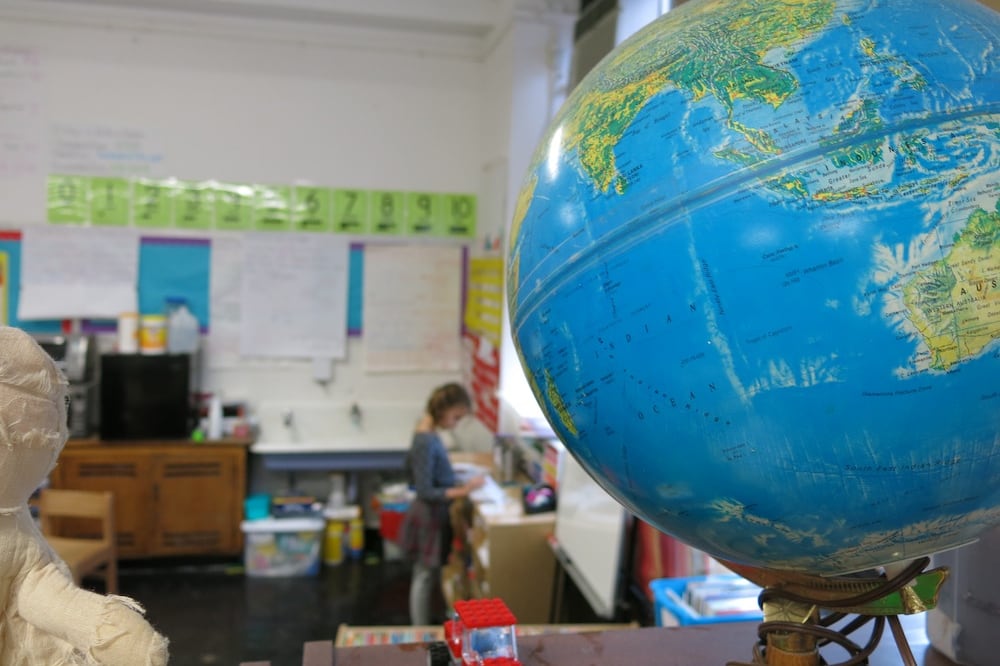The Anderson School on the Upper West Side, one of the city’s coveted gifted programs, will change its admissions policies this year in the hopes of enrolling a more diverse student body.
The education department announced on Thursday that students from northern Manhattan or the South Bronx will receive preference for 30% of seats at the school.
The priority applies to students who live north of 96th Street in District 3, which comprises the Upper West Side and parts of Harlem, those who reside in districts 4 or 5 farther north in Manhattan, or in 7, 8, 9, and 12 in the South Bronx. Parents got a peek at the changes earlier this fall, when the new admissions policy was accidently posted to the school’s website.
Brooklyn School of Inquiry is also tweaking its existing admissions priority to include students residing in certain school districts. The school will continue to give priority for 40% of its seats, with half going to students who come from low-income families, and half going to students living in districts 18 or 20 in Brooklyn.
Gifted programs citywide are starkly segregated. At Anderson, 12% of the student body is black and Hispanic, but those students make up almost 70% of public school enrollment citywide. Students from low-income families make up 15% of enrollment at Anderson, compared with more than 70% across the city.
A controversy was ignited last summer, when a school diversity advisory committee appointed by the mayor recommended phasing out gifted programs and replacing them with more inclusive enrichment models. About eight months later, Mayor Bill de Blasio has not acted on the recommendation.
Admission to gifted programs is based on the results of a single test, which is typically taken when children are about 4-years-old.
Many blame this admissions policy for contributing to school segregation. In the absence of action from the mayor, the coronavirus health crisis could force the city to reconsider admissions, said Laura Zingmond, a senior editor for the review website InsideSchools, if students are unable to take a test in person.
“We may have to alter and rethink admissions radically because of the pandemic,” she said. “We may have to confront an overhaul of admissions across the board for the next round. But we don’t know.”
It’s unclear whether the admissions changes at Anderson will have the intended effect, given gentrification in northern Manhattan, and the fact that disproportionately low numbers of black, Hispanic, and low-income students even take the gifted admissions test.
In District 5 in Harlem, for example, only 13 children earned a score high enough to apply to a citywide gifted program, out of 174 who took the test. That’s compared to Manhattan’s District 2, which spans Lower Manhattan and the Upper East Side, which had the highest number of test-takers. Almost 1,600 took the test, and 283 had a score that made them eligible for a citywide program.
Five other gifted programs and schools have admissions policies aimed at integration by offering priority based on whether students come from low-income families, are learning English as a new language, or lack stable housing. They are: P.S. 11, P.S. 77 Lower Lab School, P.S. 15, P.S. 110, and TAG Young Scholars, another citywide school.
Anderson is one of only five citywide gifted programs, meaning it is open to students from across the city who scored at least in the 97th percentile on an admissions exam. But since competition for these seats is so fierce, typically only students with near-perfect scores are admitted.
Other gifted programs are housed within city schools and require a lower score for entry. This year, 28,901 students took the admissions test, and 7,940 scored high enough to be accepted to a program, according to data released by the education department. Families were notified of their scores on Thursday, and those who are eligible can begin applying to programs. Acceptance notifications are expected in June.
“We are proud to offer an array of high-quality elementary school choices, and we join families across the city today who are celebrating their eligibility for one of our Gifted and Talented programs,” said education department spokesperson Katie O’Hanlon.







